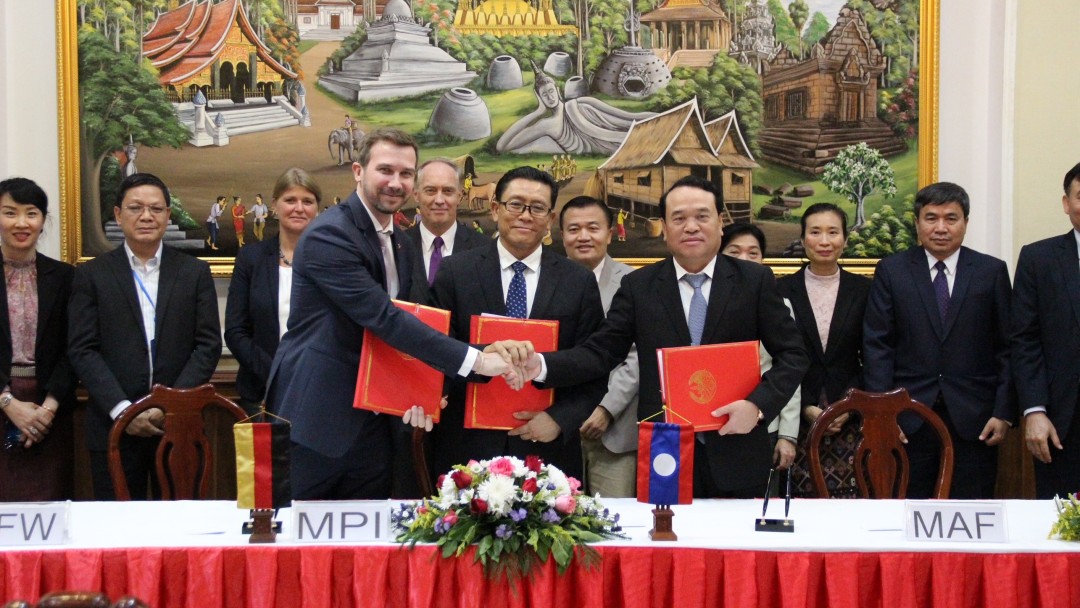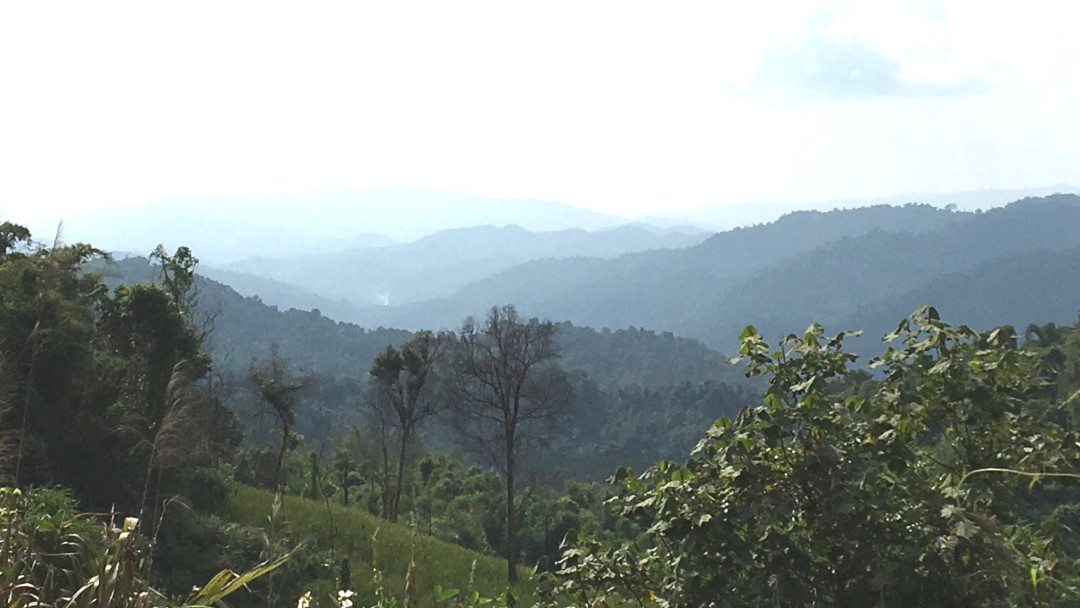News from 2020-12-18 / KfW Development Bank
Timber Legality Assurance initiative for enhanced forest management and conservation in Laos
Use of remote Sensing technology and secured supply chains for attractive timber and wooden products from Laos

On behalf of the German Federal Ministry for Economic Cooperation and Development (BMZ), KfW Development Bank is providing around EUR 20 million to support the reform of the Laotian forest sector. The Laotian Side contributes around EUR 4 million as non-cash benefits to the project. To this end, the implementation of the Forest Law Enforcement, Governance and Trade - Financial Cooperation project (FLEGT-FC) was recently agreed with the Laotian government.
The EU FLEGT Action Plan is an initiative of the European Union, which is currently being implemented in nine countries worldwide based on Voluntary Partnership Agreements (VPAs) - since 2017 the EU is negotiating with Laos as well. The Ministry of Agriculture and Forestry is leading the negotiations with the EU with support of the Deutsche Gesellschaft für Internationale Zusammenarbeit (GIZ) on behalf of the BMZ. The FLEGT FC will follow up with the implementation - a good example of the close integration of German commitments in Laos.
Even though large parts of Laos are still covered with forest today, the quality of the forest has deteriorated significantly: The reason for the rapid decline is not only large infrastructure projects but also illegal logging, which is fueled in particular by insufficient coordination and communication between stakeholders and legal uncertainties.
The forest sector is of great importance both for the Laotian economy (especially the wood-processing industry) and for preserving biodiversity and reducing poverty. Illegal logging can have devastating effects on the rural population, who still lives from the products of the forest in many places in Laos. Biodiversity and our global climate also suffer from the loss of forests. Nevertheless, wooden products from illegal timber or timber from unknown sources are often unconsciously purchased by consumers and companies, including in Germany. The challenge is therefore to combat the root causes of illegality, which include intransparent systems, lack of clarity about land rights and lack of transparency in the supply chain - the Laotian forestry sector and wood-processing industry is suffering as a result. This is where the FLEGT-FC project comes into play, offering financial support to the Laotian government in order to implement the reform efforts of the forestry sector in a consistent and sustainable manner, as timber and wooden products with a FLEGT license will be considered legal in the future, provided they are verified in accordance with FLEGT requirements.

Supply chain “from forest to point of export”
At the heart of FLEGT are the Voluntary Partnership Agreements (VPAs) between timber-producing countries and the EU. They are designed to ensure that the sale of timber in the EU is verifiably legal. Under a VPA, the producing country agrees to export only legal timber and wooden products, while the EU agrees to grant verified legal (i.e. FLEGT-licensed) timber and wooden products unrestricted access to the EU market. At the heart of the VPA is the Timber Legality Assurance System (TLAS), a verification system for the legality of operations and operators with traceable and secure supply chains ("from forest to point of export"). Hence, European consumers have the certainty of buying legal products from sustainably managed forests.
How is this monitored? In the Laotian forest areas, some of which are inaccessible, satellite remote sensing systems will collect daily data and analyze disturbance of the forest canopy - so that even the felling of a single tree can be tracked. Staff of the Laotian forestry authorities are trained to evaluate the satellite images and GIS data, to identify suspected illegal uses and undertake law enforcement action in the field. The FLEGT-FC project will support the Lao Government in the use and rollout of this system for the monitoring of logging in priority areas.
Furthermore, every step of the processing of legally produced timber from the harvesting area in the forest to the sale of the product is controlled and timber data entered into a database. This management information system also provides the basis for the electronic FLEGT licenses and, as a digital component, is also financed by the project.
In addition to improve the framework for legal timer supply and contributing to the reduction of illegal deforestation, the commitment of KfW Development Bank on behalf of the German government aims to support the creation of new jobs in the Lao wood-processing industry. Similarly, both the workers in the wood-processing industry and civil servants in the relevant ministries receive training to ensure the successful implementation of the forestry legislation and the control of supply chains for timber and wooden products. This is intended to ensure the continuation of the new FLEGT licensing process beyond the project term. "The project makes a significant contribution to ensuring that in future only timber and wooden products of legal origin from Laos reach the trade chains," said Head of Department Christian Krämer on the occasion of the signing of the contract for the project.

Share page
To share the content of this page with your network, click on one of the icons below.
Note on data protection: When you share content, your personal data is transferred to the selected network.
Data protection
Alternatively, you can also copy the short link: https://www.kfw-entwicklungsbank.de/s/enzBWrMC.CYIA
Copy link Link copied